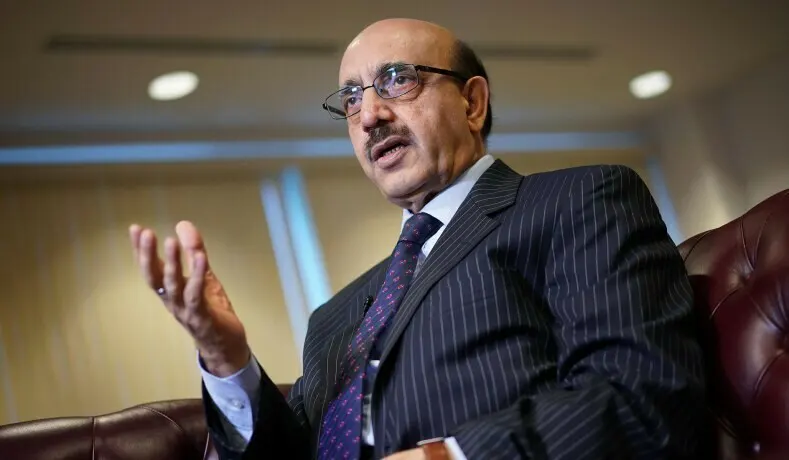Pakistan’s Ambassador to the United States and former president of Azad Jammu and Kashmir Sardar Masood Khan has said that the nation seeks support from both China and the US to address the escalating security situation in the heart of Asia.
In an interview with Newsweek, ambassador Masood Khan said that, in light of the increasing militancy and the looming threat of conflict, both rival powers are invested in averting a major crisis in the region. Masood Khan acknowledged China’s contributions to Pakistan’s economic progress in various sectors, especially through the China-Pakistan Economic Corridor (CPEC). CPEC has been instrumental in promoting economic development and stability.
He also emphasized the significance of the security and defense cooperation between Pakistan and China, characterizing the relationship as “crucial”.
In the aftermath of the US withdrawal from Afghanistan, Masood Khan said, Pakistan has recalibrated its relationship with the US to build strong economic partnerships and foster security cooperation to counter terrorism and ensure strategic stability in the region. “After the withdrawal of the United States from Afghanistan, I think we recalibrated our relationship and are using most efficiently the space that is available to the United States and Pakistan for building economic partnerships, for continuing with a paradigm of security cooperation, particularly in regard to countering terrorism and identifying the long-term strategy for strategic stability in the region,” he explained.
The US takes a pragmatic approach with the Afghan Taliban to address shared concerns, including counter-narcotics efforts and combating terrorism, Newsweek said. The US State Department also reaffirmed its commitment to working with Pakistan in countering terrorist groups throughout the region.
However, Pakistan faces challenges in ensuring stability within its borders. Concerns over economic prospects, a surge in militant attacks, and the risks of escalation along the disputed border with India have added to the country’s security woes.
The unresolved dispute over Kashmir remains a critical concern. Ambassador Khan pointed out that Pakistan and India, both nuclear-armed nations, must prioritize peace over conflict. He said recent statements by Prime Minister Shehbaz Sharif indicate a willingness to resume dialogue with India, backed by the US.
Pakistan’s future depends on international support, including from the International Monetary Fund, as the country navigates its economic crisis. However, Khan said, the government needs to address issues of corruption and prioritize internal reforms.
With the region’s security and stability at stake, Ambassador Khan emphasized the need for the US to pay closer attention to Central Asia, West Asia, the Gulf region, and the Middle East.
Beyond the political drama, however, deeply rooted issues plaguing Pakistan include concerns over the nation’s economic prospects, a sharp uptick in militant attacks that include a suicide bombing that killed at least 63 people and wounded more than 100 in the northwest province of Bajaur last week, and the unrelenting risk of an escalation along the disputed border with India.
While Ambassador Khan credited the ceasefire established between the two nuclear-armed nations two years ago with having “saved many lives,” he also warned that there remains “a grave risk to peace and security in the region” as long as the dispute over the territory of Kashmir remains unresolved.
“Pakistan and India are nuclear weapons states, and even if they were not nuclear weapons states, these are big nations, with big armed forces and big populations,” he argued, “and therefore, peace should be an imperative, not a potential conflict.”
Ambassador Khan, who previously served as president of Azad Jammu and Kashmir, outright rejected the notion that Pakistan played any role in aiding and abetting militant groups on either side of the de facto border.
“I want to say very categorically and clearly that there are no militant groups operating in the Indian-occupied Jammu and Kashmir or in Azad Kashmir or from Azad Kashmir,” the Pakistani envoy told Newsweek. “That’s a myth that India continues to peddle to garner sympathy for itself on the grounds that it is fighting terrorism.”
“There is no terrorism there,” he added. “In fact, these people are under occupation, and they’ve been declared against their a federal territory.—NNI










